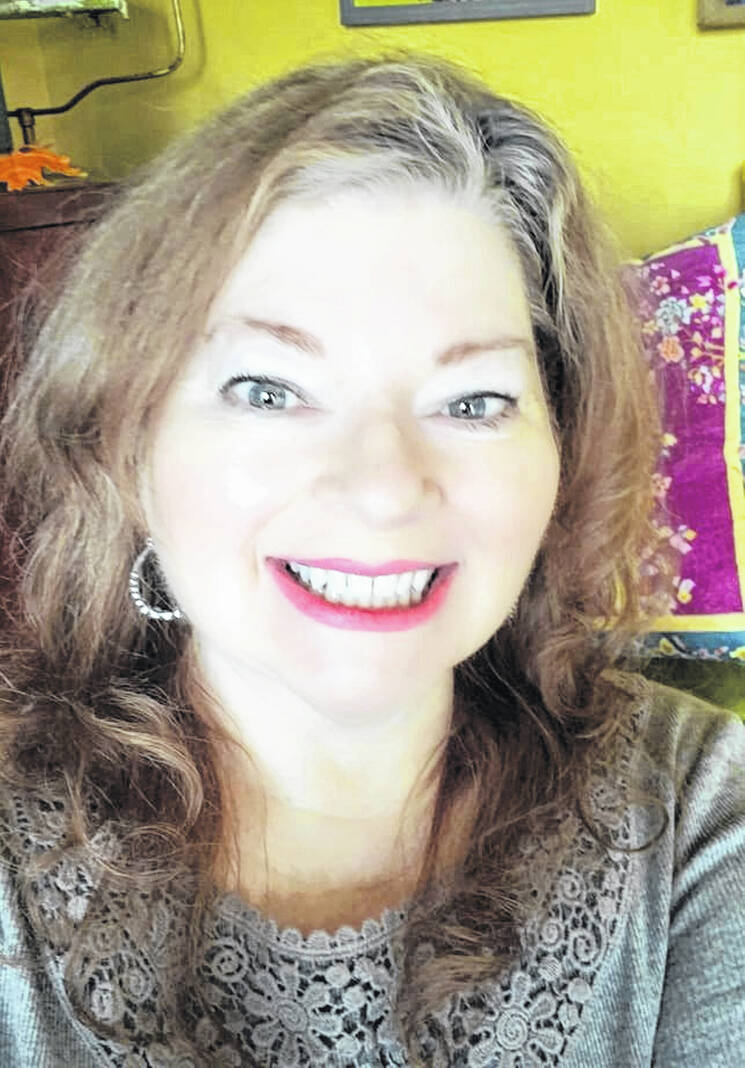
Rebecca Spencer

Rebecca Spencer

By Vivian Blevins
Contributing Columnist
Perhaps Black History Month is a time for remembering when it is so easy or necessary or convenient to forget.
Authors are essential as they use their talents to capture the shock, the pain, the disillusionment, the anger we feel when we are bombarded with the news of senseless deaths at the hands of some law enforcement personnel.
Author Rebecca May Willison Spencer of Ludlow Falls, is committed to giving voice to the deceased, modeled after the verses of American poet Edgar Lee Masters’ Spoon River Anthology, written over 100 years ago. In his poetry, Masters details the accounts of the lives of the deceased in a mythical Ohio town-or was it mythical? He allows them to speak from their graves and tell the truth of their lives, the truth as Masters understood it as observer.
A 2021 graduate of Edison State Community College and employed by Private Autobiography, Spencer says, “I grew up sheltered, unaware of the inequities in the world, wasn’t taught about them in school at Milton-Union. My peer group was largely white and conservative, and we just didn’t talk about race, inequities.”
She indicates that in the past she had compassion but “didn’t dig any deeper than that.”
In regard to the murders by some law enforcement personnel, she believes that “a lot of people try to rationalize the murders because it makes them feel better to blame the victim as they don’t have to face the awful reality of what’s going on, and I’m ashamed to say that I did a little of that in my past.”
The turning point for Spencer was May 25, 2020, when George Floyd was killed by police officers in Minneapolis for passing a counterfeit bill: “When George Floyd was killed, it was different for me- maybe it was because it was videotaped. And I saw the arrogance of those who participated.”
Of her poem about Floyd entitled “I Didn’t Know,” she writes, “I didn’t know I would be someone’s hero/ That I would make an impact/I didn’t know that my not mattering to some/ would make me matter to many… .”
Spencer says that she uses her poetry as a way of “expressing my thoughts, my feelings, what’s important to me, things on my mind and in my heart.”
Breonna Taylor was shot to death on March 13, 2020, in Louisville, Ky., by police as they served a no-knock warrant. In “Say My Name,” Spencer writes, “I have a name./My name is Breonna Taylor./ Do you see me? Do you know me? /I have a voice./ Do you hear me?
Toward the end of this poem, Spencer has Taylor saying from the grave, “You can knock…and knock…and knock again, but I will not answer./ The voice is yours now. Use it for me. Give me a voice.”
And Spencer is using her abilities to give voice. On the evening of Feb. 22, 2023, Destined Dewberry, an eighth grader at Piqua Junior High School, will be reading “Just a Boy,” Spencer’s sense of Tamir Rice, a 12-year-old who was killed by a police officer in Cleveland, Ohio, on Nov.22, 2014: “bang bang/ I run and play./I’m pretending to be a police officer./Mama says I’m a good kid. I used to like to play Legos, but I’m kind of outgrowing/them. I like to play video games now. I’ll be a teenager next year.”
Spencer will be reading “Four and Twenty” at that same event, a poem she read at the Hayner Cultural Center when she was one of the featured 12 poets last year in the annual Mosaic event. “Four and Twenty” gives voice to Staphon Clark, of Cleveland, Ohio, as he stood in his grandparents’ backyard on March 18, 2018: “Four seconds./ My life amounted to four seconds./Four seconds of warning./Four seconds to decide to kill me/For talking on my phone/in my grandparents’ backyard./ Is that a crime?/ It is for a 22-year-old Black man.”
Spencer approaches a poem by researching the lives of African Americans who die by police violence to gain a sense of them as individuals and then finds a focus to give voice to them, to, as she says, “see them as individuals with stories and not as statistics, numbers, news stories.”
She is currently working on a poem to give voice to Tyre Nichols with a working title of “Trying to Go Home.” Of Nichols, she says, “Maybe his cries for his mother pierced my heart because I am a mother. Something has changed for me: Not only do I hurt for him and his family, I am also angry.”
She continues, “What I do is a small thing in the grand scheme, but it’s an honor to give voice to these victims. I wish there were no more victims. Sadly, that is not the reality.
In conclusion, Spencer says, “Initially, these poems were an assignment in a creative writing class at Edison. But now… .”




